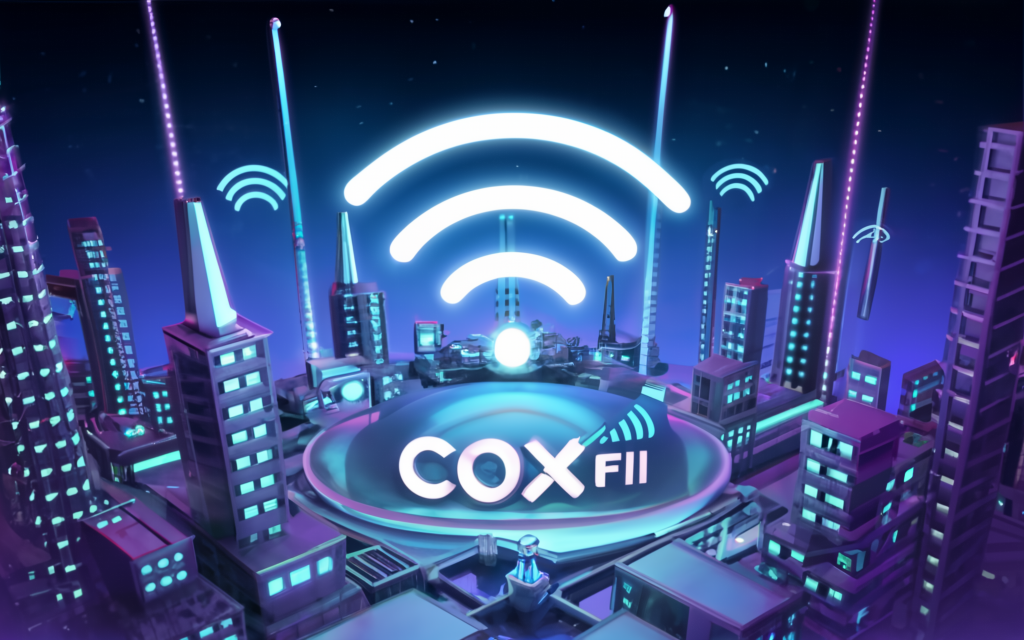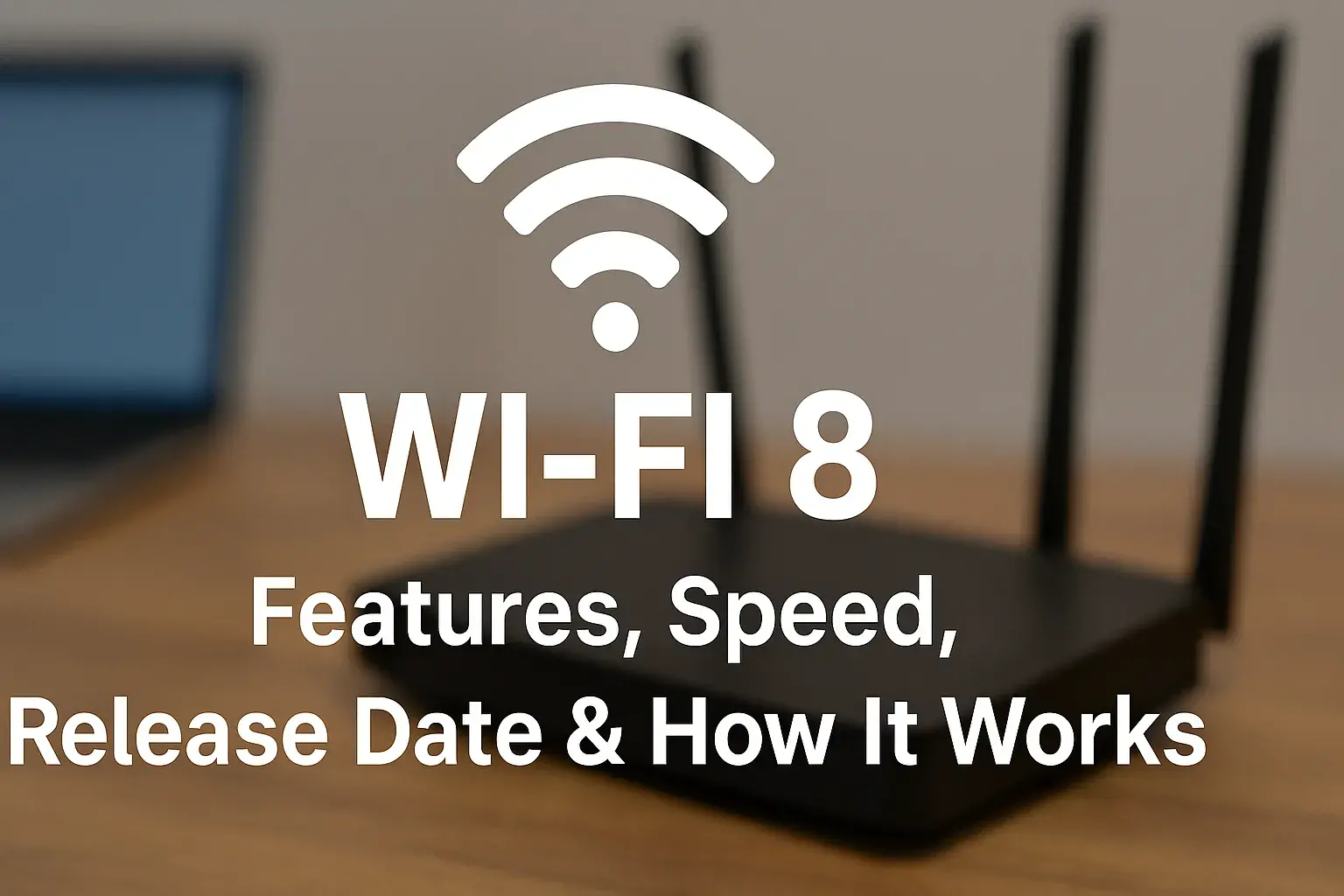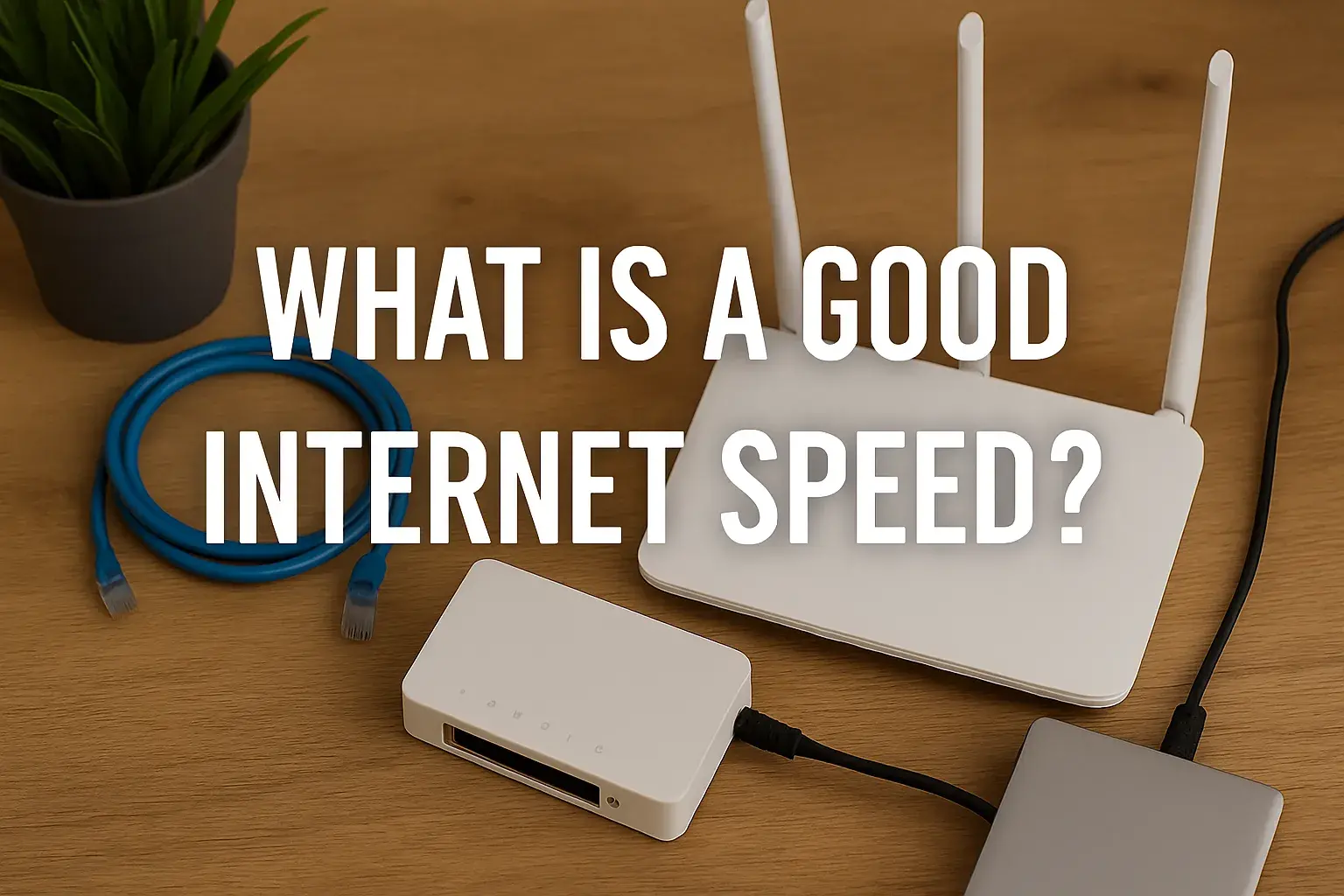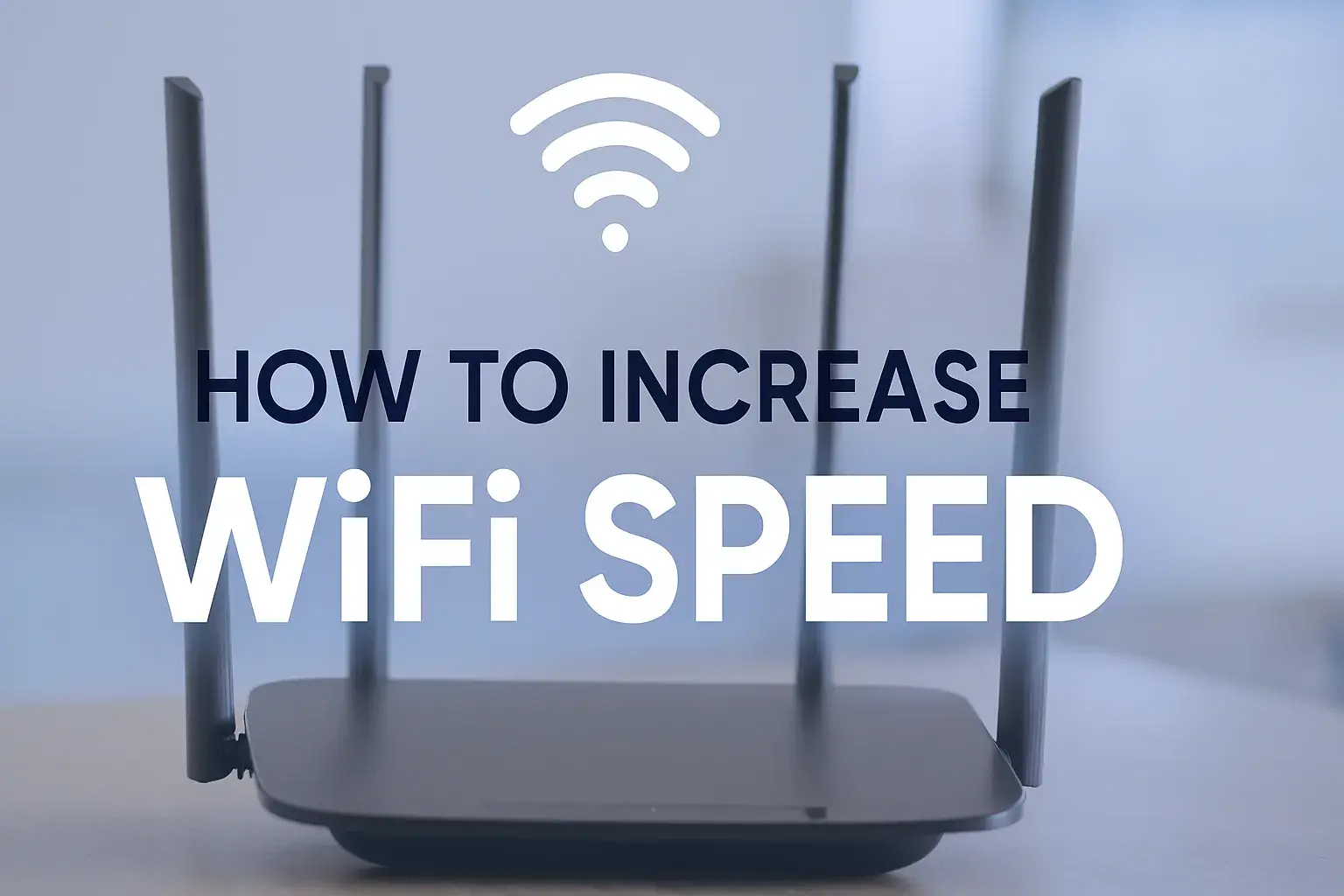Is Cox WiFi Unlimited?

Cox Communications offers various internet plans, but the question of "Is Cox WiFi Unlimited?" is a common one for consumers. While many Cox plans provide unlimited data, understanding the nuances, potential throttling, and what "unlimited" truly means in practice is crucial for making an informed decision about your internet service. This guide will break down Cox's data policies for 2025.
Cox's Official Stance on Data Usage
Cox Communications, like many major internet service providers (ISPs), has evolved its data policies over the years. As of 2025, the general consensus and the information readily available on Cox's official website indicate that most of their residential internet plans are marketed as having "unlimited" data. This is a significant selling point for consumers who are increasingly reliant on high-speed internet for work, entertainment, and communication.
However, the term "unlimited" in the ISP world often comes with caveats. Cox's approach to data usage is not a free-for-all. They operate under a system that, while not imposing hard data caps on most plans, does have mechanisms in place to manage network traffic and ensure a consistent experience for all users. This is primarily achieved through a "Fair Usage Policy" or similar terms within their service agreements. It's essential to understand that "unlimited" doesn't always mean "unrestricted" in terms of speed or priority when the network is under heavy load.
Cox's official documentation typically states that their plans are designed for typical residential use. They aim to provide a reliable and consistent internet experience. The policy is in place to prevent a small number of extremely heavy users from disproportionately impacting the performance for the majority of their customer base. This means that while you won't typically receive an overage bill for exceeding a certain data threshold, your speeds *could* be subject to temporary slowdowns during peak network congestion if your usage is exceptionally high.
It's also important to note that specific plans, particularly those offered in business contexts or specialized bundles, might have different data allowances or policies. For the average residential customer, the "unlimited" marketing is generally accurate in that there's no fixed monthly data cap that will result in service interruption or exorbitant fees. The key lies in understanding the underlying network management practices.
For the most up-to-date and definitive information, it is always recommended to consult the specific terms of service for the Cox internet plan you are considering or currently subscribe to. This information can usually be found on Cox's website or by contacting their customer support directly. Understanding these policies upfront can prevent surprises and ensure you choose a plan that best fits your household's internet habits.
Understanding Cox's Fair Usage Policy
Cox's Fair Usage Policy is the cornerstone of their "unlimited" data offering. This policy is not unique to Cox; it's a standard practice among ISPs to maintain network stability and performance for all subscribers. The core principle is to ensure that no single user or small group of users consumes an excessive amount of bandwidth, which could degrade the service for others on the same network segment.
The policy typically defines what constitutes "excessive use." While Cox may not publish exact figures for what triggers this policy (as these can vary based on network conditions and capacity), it generally refers to usage that is significantly higher than the average residential customer. This could include activities like:
- Running multiple high-definition or 4K streams simultaneously on numerous devices for extended periods.
- Extensive peer-to-peer file sharing (e.g., torrenting) that consumes a large portion of available bandwidth.
- Operating a server or hosting services that generate continuous, high-volume data traffic.
- Downloading or uploading massive amounts of data on a daily or weekly basis, far exceeding typical streaming, browsing, and gaming needs.
If your usage is deemed excessive under this policy, Cox reserves the right to take certain actions. These actions are usually designed to be non-punitive for most users and often involve temporary measures. The most common consequence is network management, which can lead to a temporary reduction in your internet speeds. This throttling is typically applied during peak hours when network congestion is highest. Once peak hours pass or your usage returns to more typical levels, your speeds should return to normal.
It's important to emphasize that this is not the same as a hard data cap. You won't be cut off or charged overage fees for exceeding a specific gigabyte limit. Instead, it's a dynamic adjustment to manage network resources. Cox aims for transparency by providing tools to monitor your usage, which we will discuss later. The goal is to maintain a good internet experience for everyone, and the Fair Usage Policy is their mechanism for achieving that balance.
Network Management Practices Explained
Network management is a technical and operational practice employed by ISPs to ensure the efficient and reliable delivery of internet services. For Cox, and indeed for most ISPs, this involves a combination of strategies to manage bandwidth, prioritize traffic, and prevent network congestion. The "unlimited" data plans are managed within this framework.
Key network management practices include:
- Traffic Shaping: This involves prioritizing certain types of internet traffic over others. For example, Cox might prioritize time-sensitive applications like VoIP calls or online gaming over less time-sensitive activities like large file downloads that can be resumed later. This ensures that essential services remain responsive.
- Congestion Management: During periods of high demand (peak hours), when many users are online and consuming bandwidth, the network can become congested. To mitigate this, ISPs like Cox may temporarily reduce the speeds of users who are consuming disproportionately large amounts of data. This is the most common way the Fair Usage Policy is enforced.
- Protocol Filtering: In some cases, ISPs might limit or block certain protocols that are known to consume excessive bandwidth or are associated with activities like peer-to-peer file sharing. This is often done to maintain overall network health and prevent abuse.
- Application-Specific Throttling: While less common for general residential plans, some ISPs might throttle specific applications if they are identified as heavy bandwidth consumers. However, Cox generally focuses on overall data consumption rather than singling out specific applications for throttling on their unlimited plans.
These practices are implemented to ensure that even during peak usage times, the majority of users can still access the internet for their essential needs. The aim is to provide a consistent and satisfactory experience for everyone. The effectiveness of these practices depends on the ISP's infrastructure, the number of subscribers in an area, and the overall demand on the network. Cox invests in network upgrades to accommodate growing data demands, but temporary slowdowns during extreme congestion are a possibility for the heaviest users.
What "Unlimited Data" Really Means with Cox
The term "unlimited data" is a powerful marketing tool, but its interpretation can vary. For Cox residential internet plans, "unlimited data" generally means that there is no hard monthly data cap that will automatically result in your service being suspended or incurring significant overage charges. You can, in theory, use as much data as your plan allows without hitting a predetermined limit that cuts off your internet access.
However, this "unlimited" nature is governed by the Fair Usage Policy and network management practices previously discussed. This means that while you won't be billed for exceeding a specific data threshold, your experience might be affected if your usage is exceptionally high and contributes to network congestion. This is a crucial distinction.
Let's break down what this means in practical terms for different types of users in 2025:
For the Average User
For most households, "unlimited data" with Cox means you can comfortably stream HD movies, browse the web, check emails, use social media, play online games, and even download occasional large files without worrying about hitting a data limit. The average U.S. household consumed approximately 437 GB of data per month in late 2023, and this number is projected to grow. Cox's unlimited plans are designed to accommodate this and more.
Activities that fall within typical usage include:
- Streaming video (Netflix, Hulu, YouTube) in HD or even 4K on a few devices simultaneously.
- Participating in video calls for work or personal use.
- Online gaming, including downloading game updates.
- Browsing the web, social media, and general internet activities.
- Using smart home devices.
For these users, Cox's "unlimited" data is effectively unlimited, as their usage is unlikely to trigger any network management interventions.
For the Heavy User
Heavy users are those who consistently consume significantly more data than the average household. This could include:
- Families with multiple members streaming 4K content on numerous devices simultaneously for many hours a day.
- Individuals who download and upload extremely large files regularly (e.g., professional video editors, content creators).
- Users who engage in extensive peer-to-peer file sharing.
- Households running servers or hosting services that require constant high bandwidth.
For these users, while there's no hard cap, the "unlimited" aspect might come with a caveat. If their usage is exceptionally high and contributes to network congestion, they might experience temporary speed reductions, particularly during peak hours. This is not a penalty but a network management technique to ensure fair access for all subscribers. Cox's network is designed to handle a certain load, and extreme usage can push those limits.
It's important to understand that Cox's policies are designed to target extreme outliers. If you are a heavy user, it's still unlikely you'll face constant throttling unless your usage is consistently at the very top percentile of all users in your area. However, it's a possibility to be aware of.
The Role of Network Congestion
Network congestion is a critical factor in how "unlimited" data is experienced. Imagine a highway: even if there are no speed limits, if too many cars try to use it at once, traffic slows down for everyone. The internet works similarly. When many users in a neighborhood are online and using bandwidth simultaneously, especially during peak evening hours, the network can become congested.
Cox, like other ISPs, uses network management techniques to alleviate congestion. For heavy users, this can mean their speeds are temporarily de-prioritized to ensure that moderate users can still access the internet at reasonable speeds. This is why, even with an "unlimited" plan, you might notice slower speeds during peak times if your usage is unusually high.
The capacity of Cox's infrastructure in your specific area plays a significant role. In areas with newer, upgraded infrastructure, congestion is less likely to be a widespread issue. In older or more densely populated areas, congestion can be more common, and the impact of heavy usage might be more noticeable.
Analyzing Cox Internet Plans and Their Data Allowances
Cox offers a range of internet plans, each with different download and upload speeds. While the "unlimited data" policy generally applies across most residential tiers, it's beneficial to understand how these plans are structured and what you can expect in terms of performance.
As of 2025, Cox's primary residential internet offerings typically include plans with varying speed tiers. These plans are usually named descriptively, indicating their approximate download speeds. For example:
- Cox Internet Starter: Designed for basic internet needs like browsing and email.
- Cox Internet Essential: A step up, suitable for streaming on a few devices.
- Cox Internet Preferred: Offers faster speeds for more demanding activities like 4K streaming and online gaming.
- Cox Internet Ultimate: High-speed plans for power users and households with many connected devices.
- Cox Internet Gigablast: Their top-tier offering, providing gigabit speeds for the most demanding applications.
Crucially, for the vast majority of these residential plans, Cox states that they offer unlimited data. This means that regardless of whether you choose the "Starter" or "Gigablast" plan, you are not subject to a hard data cap that will cut off your service or incur overage fees if you exceed a certain monthly data allowance.
Table: Cox Residential Internet Plans (Illustrative - 2025)
| Plan Name | Typical Download Speed (Mbps) | Typical Upload Speed (Mbps) | Data Allowance |
|---|---|---|---|
| Cox Internet Starter | Up to 100 | Up to 5 | Unlimited |
| Cox Internet Essential | Up to 250 | Up to 10 | Unlimited |
| Cox Internet Preferred | Up to 500 | Up to 10 | Unlimited |
| Cox Internet Ultimate | Up to 1000 (1 Gbps) | Up to 35 | Unlimited |
| Cox Internet Gigablast | Up to 2000 (2 Gbps) | Up to 100 | Unlimited |
Note: Speeds and plan names are illustrative for 2025 and may vary by region. Always check Cox's official website for the most accurate and up-to-date plan details in your area.
The primary differentiator between these plans is the speed, not a data cap. A higher-speed plan allows more data to be transferred per second, meaning you can download large files faster, stream higher-quality video without buffering, and support more devices simultaneously. However, the underlying policy of unlimited data remains consistent across these residential tiers.
It's crucial to consider your household's typical internet usage when choosing a plan. If you have a single user who primarily browses and checks email, a lower-tier plan might suffice. If you have a large family with multiple users streaming, gaming, and working from home, a higher-tier plan with faster speeds will provide a much better experience, even with unlimited data. The speed directly impacts how quickly you consume data, but not whether you are "cut off" by a data limit.
Business Plans vs. Residential Plans
It is important to distinguish between Cox's residential internet plans and their business internet offerings. While residential plans are generally marketed as unlimited with no hard caps, business plans often have different terms and conditions. Business services are typically designed for higher usage, more critical uptime requirements, and may come with specific service level agreements (SLAs).
Business plans from Cox may include:
- Dedicated Bandwidth: Often offering more consistent speeds, especially during peak hours.
- Service Level Agreements (SLAs): Guarantees on uptime and performance, with potential service credits for outages.
- Static IP Addresses: Essential for hosting servers or running certain business applications.
- Potentially Different Data Policies: While some business plans might also be unlimited, others could have higher data allowances or different management policies than residential plans.
If you are running a business from home or have very high, consistent bandwidth needs that go beyond typical residential use, it might be worth exploring Cox's business internet solutions. These plans are tailored for professional use and may offer a more robust and predictable experience, though they often come at a higher price point than residential plans.
For the vast majority of home users, however, the residential "unlimited data" plans are the relevant offering. The key takeaway is that for your home internet, you are generally not going to face a data limit that stops your service. The focus is on speed and managing network performance.
Common Misconceptions About Cox WiFi Data
The term "unlimited data" is frequently misunderstood, leading to confusion and sometimes unrealistic expectations. Here are some common misconceptions about Cox WiFi data policies:
Misconception 1: "Unlimited" means I can download and upload anything, anytime, at full speed.
Reality: As we've discussed, "unlimited" with Cox means no hard data cap. However, your speeds are still subject to the overall network capacity and Cox's Fair Usage Policy. During peak hours, if your usage is exceptionally high, your speeds *could* be temporarily reduced to manage network congestion. This is a standard practice for most ISPs to ensure fair access for all users.
Misconception 2: Cox will charge me extra if I use too much data.
Reality: For their standard residential plans, Cox does not typically charge overage fees for exceeding a certain data limit. The "unlimited" aspect means you won't get a bill shock based on a hard data cap. The potential consequence of very high usage is speed throttling, not additional charges for data volume.
Misconception 3: My Wi-Fi router is the source of data limits.
Reality: Your home Wi-Fi router creates your local wireless network. It does not impose data limits on your internet connection. The data limits or policies are set by your Internet Service Provider (ISP), in this case, Cox. Your router simply facilitates the connection between your devices and the internet service provided by Cox.
Misconception 4: Cox monitors every single thing I do online.
Reality: ISPs like Cox monitor overall data usage for network management purposes. They are concerned with the volume of data being transferred and the impact on the network, not necessarily the specific content of your internet traffic (unless it's for illegal activities or violates their terms of service). Their goal is to ensure network stability and fair usage, not to snoop on your personal browsing habits.
Misconception 5: If my neighbor has Cox, they are using my data.
Reality: Your Cox internet connection is tied to your account and your modem/router. Unless you have explicitly shared your Wi-Fi password with a neighbor, they cannot use your internet connection or your data allowance. Each household's internet usage is independent.
Understanding these distinctions is vital. Cox's "unlimited" data is a benefit for most users, but it's important to be aware of the underlying network management practices that ensure the service remains functional and equitable for everyone on the network.
The Impact of Heavy Data Usage on Your Cox Service
While Cox advertises "unlimited" data for its residential plans, it's crucial to understand the practical implications of being a heavy data user. The impact isn't typically about incurring extra charges, but rather about the potential for your internet experience to be affected, especially during peak usage times.
Temporary Speed Throttling
This is the most common consequence of exceeding typical usage patterns under Cox's Fair Usage Policy. If your data consumption is significantly higher than the average user in your area, and this usage contributes to network congestion, Cox may temporarily reduce your internet speeds. This throttling is usually:
- Temporary: Speeds typically return to normal once your usage drops or network congestion eases.
- Time-dependent: Often applied during peak hours (e.g., evenings and weekends) when more people are online.
- Not a hard cutoff: You won't lose internet access entirely, but your speeds will be slower.
For activities like streaming, this could mean buffering or lower video quality. For downloads, it means longer wait times. For online gaming, it could lead to higher latency or lag.
Network Congestion in Your Area
The impact of heavy usage is amplified by the overall network conditions in your neighborhood. If Cox's infrastructure in your area is robust and has ample capacity, even heavy users might not notice significant slowdowns. However, in areas with older infrastructure or a high density of subscribers, congestion can be more pronounced. In such scenarios, a heavy user's consumption can have a more noticeable impact on their own experience and potentially on that of their neighbors.
Impact on Specific Activities
Different online activities consume varying amounts of data and are affected differently by speed reductions:
- Streaming Video: 4K streaming consumes a lot of data. If throttled, you might experience buffering, lower resolution, or longer load times.
- Online Gaming: While games themselves might not consume massive amounts of data, latency is critical. Throttling can increase ping times, leading to a poor gaming experience.
- Large File Downloads/Uploads: Downloading large software updates, movies, or backing up extensive photo libraries will take significantly longer if speeds are reduced.
- Video Conferencing: While generally less data-intensive than 4K streaming, consistent high-quality video calls can be affected by throttling, leading to choppy audio or video.
- Smart Home Devices: Most smart home devices use minimal data. However, a large number of them could contribute to overall network traffic, though it's unlikely to be the primary driver of throttling unless other heavy usage is also occurring.
What Constitutes "Heavy Usage"?
Cox does not publicly disclose exact data thresholds for what constitutes "heavy usage." This is intentional, as it allows them flexibility to manage their network dynamically based on real-time conditions. However, as a general guideline, if your household consistently uses hundreds of gigabytes (GB) or even terabytes (TB) of data per month, you are likely in the heavy user category. For context, a single hour of 4K streaming can consume up to 7 GB of data.
If you are concerned about your data usage and its potential impact, monitoring your consumption is key. This leads us to the next important section.
How to Monitor Your Cox Data Usage
Even with "unlimited" data plans, it's wise to keep an eye on your internet consumption. This helps you understand your household's habits, identify potential issues, and ensure you're not inadvertently contributing to network congestion that might affect your service. Cox provides tools to help you do this.
Using the Cox App or Website
The most straightforward way to monitor your data usage is through Cox's official channels:
- Cox App: Download the Cox app on your smartphone or tablet. After logging in with your Cox account credentials, you can typically find a section dedicated to your internet service. This section often displays your current month's data usage.
- Cox Website: Log in to your account on the Cox Communications website. Navigate to the "My Account" or "Internet Services" section. You should find a dashboard or usage tracker that shows your data consumption for the current billing cycle.
These tools are designed to give you a clear overview of how much data you've used. They usually update daily, so you can track your progress throughout the month.
Understanding the Data Display
When you check your usage, you'll typically see data presented in gigabytes (GB). Your plan is "unlimited," meaning there's no hard cap. However, observing your usage can reveal patterns:
- Consistent High Usage: If you consistently see your usage climbing into hundreds of GBs each month, you are a heavy user.
- Sudden Spikes: A sudden increase in usage might indicate a new device, a family member downloading large files, or an issue with a device consuming data unexpectedly.
- Usage Trends: By looking at historical data (if available), you can see how your usage changes over time and identify peak usage periods.
What to Do If You See High Usage
If your data usage is consistently high, and you're concerned about potential impacts on your service, consider the following:
- Identify Data-Hungry Activities: Review the activities that consume the most data in your household (e.g., 4K streaming, large downloads, online gaming).
- Optimize Streaming Settings: If you stream a lot, consider lowering the video quality on some devices to standard definition (SD) or high definition (HD) instead of 4K, especially if you have multiple streams running.
- Manage Downloads: Schedule large downloads for off-peak hours or during times when you're not actively using the internet heavily.
- Secure Your Wi-Fi: Ensure your Wi-Fi network is secured with a strong password. An unsecured network could allow unauthorized users to consume your bandwidth.
- Check for Unnecessary Background Usage: Some devices and applications might use data in the background. Review settings on your devices and smart home gadgets.
While Cox's "unlimited" data policy is generous, being informed about your usage is the best way to ensure a consistently good internet experience.
Considering Alternatives If Cox's Data Policy Doesn't Suit You
While Cox offers "unlimited" data on most residential plans, some users might have specific needs or concerns that lead them to explore alternatives. These might include:
- Concerns about potential throttling: Even without hard caps, the possibility of speed reductions for heavy users might be a deterrent for some.
- Desire for more predictable performance: Some users prefer providers that offer stricter guarantees on speeds, even if it means a hard data cap.
- Availability in their area: Cox service is not available everywhere.
- Pricing or bundling preferences: Other providers might offer better deals or bundles.
When looking for alternatives, consider these factors:
Other Major ISPs
Depending on your location, you might have access to other national or regional ISPs. Some of the major players include:
- Xfinity (Comcast): Also offers "unlimited" data plans, but has a data cap (currently 1.2 TB per month) that, if exceeded, can result in overage charges or automatic speed throttling. They offer an unlimited data option for an additional monthly fee.
- Spectrum (Charter Communications): Generally does not impose data caps on its internet plans, making them a strong contender for users concerned about data limits.
- AT&T: Offers fiber and DSL plans. Fiber plans are typically unlimited. Some DSL plans may have data caps, though these are becoming less common.
- Verizon Fios: Known for its fiber optic network, Verizon Fios plans are generally unlimited with no data caps and offer symmetrical upload/download speeds.
When comparing, always check the specific plan details for data allowances, speeds, and any associated policies like Fair Usage or throttling. You can often find this information on the provider's website or by calling their sales department.
Fixed Wireless and Satellite Internet
If cable or fiber is not available in your area, fixed wireless or satellite internet might be your only options. These services can be useful for basic internet needs but often come with significant limitations:
- Fixed Wireless: Uses radio signals to connect to a tower. Data allowances can vary widely, and speeds are dependent on distance and line-of-sight.
- Satellite Internet: Offers service in very remote areas but typically has lower speeds, higher latency, and often stricter data caps than terrestrial services. Providers like HughesNet and Viasat are common examples.
These options are generally not ideal for heavy internet users but can be a lifeline for those in underserved regions. Be sure to scrutinize their data policies, as many do have hard caps and can be quite expensive for the data provided.
Mobile Hotspots and 5G Home Internet
With the advancement of 5G technology, some mobile carriers are offering 5G Home Internet services. These can be a viable alternative, often with unlimited data. However, performance can vary greatly depending on network congestion and signal strength in your specific location. Mobile hotspots from your smartphone can also be a temporary solution, but data plans are usually limited and can be expensive for extensive use.
When considering alternatives, always perform a thorough search for what's available at your specific address and compare the plans based on your household's actual internet usage needs. Don't just look at the headline "unlimited" claim; delve into the details of their policies.
Tips for Managing Your Data Usage Effectively
Whether you have an "unlimited" Cox plan or a plan with a data cap, managing your data usage effectively is a smart practice. It ensures a smoother internet experience, conserves bandwidth, and can help prevent potential issues like throttling or exceeding limits.
1. Optimize Streaming Quality
Streaming video is one of the biggest data consumers. Most streaming services (Netflix, YouTube, Hulu, etc.) allow you to adjust the video quality:
- Use HD instead of 4K: Unless you have a 4K-capable display and are watching content specifically mastered in 4K, sticking to HD (1080p) can save significant data.
- Lower Quality on Secondary Devices: If multiple people are streaming, consider setting some devices to standard definition (SD) to reduce overall data consumption.
- Download for Offline Viewing: Many services allow you to download movies or shows when you're on Wi-Fi to watch later without using your internet data.
2. Be Mindful of Downloads and Uploads
Large file downloads (software updates, games, movies) and uploads (cloud backups, video uploads) can consume a lot of data quickly.
- Schedule Downloads: Set your devices to download large files during off-peak hours or when you're not actively using the internet.
- Pause Cloud Syncing: If you use cloud storage services (Google Drive, Dropbox, OneDrive), configure them to sync only when you're on Wi-Fi or during specific times.
- Compress Files: Before uploading large files, consider compressing them to reduce their size.
3. Secure Your Wi-Fi Network
An unsecured Wi-Fi network is an open invitation for others to use your internet connection. This can lead to unexpected data usage and potential security risks.
- Use a Strong Password: Change the default password on your router to a complex, unique password.
- Enable WPA2/WPA3 Encryption: Ensure your router is set to use the latest security protocols.
- Change Your SSID: While not a security measure, changing your network name (SSID) can make it less obvious.
4. Manage Background Data Usage
Many devices and applications use data in the background, even when you're not actively using them.
- Check App Permissions: On smartphones and tablets, review app permissions and disable background data usage for apps that don't need it.
- Disable Automatic Updates: Configure apps and operating systems to update only when connected to Wi-Fi.
- Smart Home Devices: While generally low-usage, a large number of smart home devices could contribute. Ensure they are functioning correctly and not sending excessive data.
5. Use Data-Saving Features
Some browsers and applications have built-in data-saving features. For example, mobile browsers often have a "data saver" mode that compresses web pages.
6. Understand Your Plan
Even with "unlimited" plans, understanding the nuances of your ISP's policy is crucial. Knowing about potential throttling or network management practices allows you to adjust your behavior if necessary to maintain optimal performance.
By implementing these tips, you can ensure that your Cox internet service, whether truly unlimited or not, performs at its best for your household's needs.
Final Verdict: Is Cox WiFi Truly Unlimited?
After a comprehensive look at Cox's data policies and practices in 2025, the answer to "Is Cox WiFi Unlimited?" is nuanced. For the vast majority of residential customers, the answer is effectively yes, with important caveats.
Cox's residential internet plans are marketed as having unlimited data, meaning you will not encounter hard data caps that lead to service disconnection or exorbitant overage fees. This aligns with the growing demand for high-bandwidth activities like streaming, online gaming, and remote work. You can use as much data as you need without the constant worry of hitting a predetermined monthly limit.
However, the term "unlimited" is managed through Cox's Fair Usage Policy and network management practices. This means that while there's no hard cap, exceptionally high data consumption that contributes to network congestion *can* result in temporary speed throttling, particularly during peak hours. This is a standard industry practice designed to ensure a stable and equitable internet experience for all subscribers. It's a measure to prevent a small percentage of extremely heavy users from negatively impacting the service for the majority.
Key Takeaways:
- No Hard Caps: Most Cox residential plans offer unlimited data, so you won't be cut off or charged extra for exceeding a specific data allowance.
- Fair Usage Policy: Extremely high usage may lead to temporary speed reductions to manage network congestion.
- Network Dependent: The impact of heavy usage can vary based on the capacity of Cox's infrastructure in your area.
- Monitor Your Usage: Use the Cox app or website to track your data consumption and understand your household's habits.
- Optimize for Performance: Employ data management tips to ensure a smooth experience, especially if you are a heavy user.
In conclusion, for typical residential use, Cox WiFi can be considered unlimited. If your household consists of power users who consistently push the boundaries of data consumption, it's wise to be aware of the potential for network management interventions. By understanding these policies and monitoring your usage, you can make the most of your Cox internet service and enjoy a reliable connection for all your online needs in 2025 and beyond.





